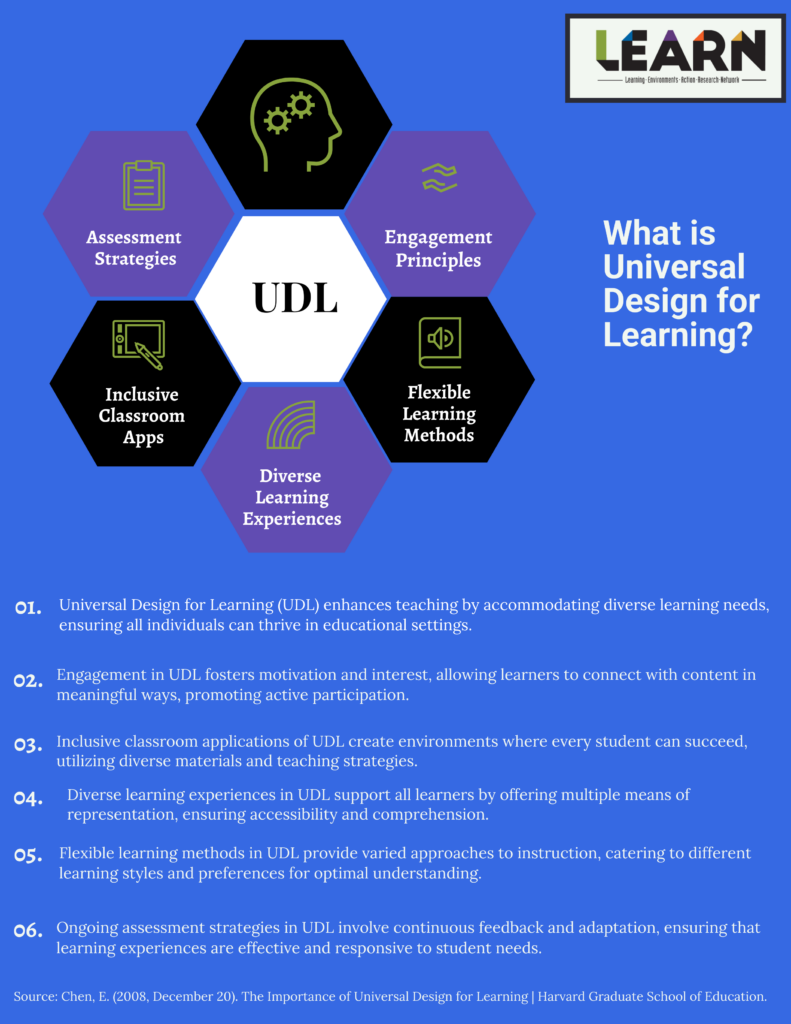The Importance of Universal Design for Learning

Key Takeaway: Harvard’s David Rose and the Center for Applied Special Technology (CAST) propose a shift from “student disability” to “curriculum disability,” advocating for a more inclusive, flexible approach to education called Universal Design for Learning (UDL). UDL’s core principles include multiple means of representation, expression, and engagement, tailored to accommodate individual student differences. Technology plays a supportive, but not essential role in this process, underlining the idea that the curriculum should adapt to students, not the other way around.
Lit Review: The Power of Student Voice and Choice

Key Takeaway: This comprehensive literature review showcases the transformative power of student voice in K-12 schools, directly linking it to heightened student motivation, well-being, and engaged learning. The review provides educators with a goldmine of practical recommendations – ranging from promoting student choice and input, building trust, fostering collaboration, and encouraging reflection and community engagement. Enhance academic performance by empowering students in their learning journey.
Student Voice in Secondary Schools: The Possibility for Deeper Change
Criteria: This research paper provides an extensive current overview of student voice concepts and initiatives by a prominent researcher.
Key Takeaway: This engaging review unravels the power of ‘student voice,’ where students become catalysts for social change in spaces such as classroom instruction, organizational transformation, and the fruitful exploration of student power dynamics.
Lit Review- Self-Directed Learning
Criteria: Extensive Review of the educational literature on Self-Directed Learning
Key Takeaway: This comprehensive article dives into the intriguing realm of self-directed learning and proposes integrating assessment into performance appraisals rather than conventional grading. Tangible tools educators can use for self-directed learning initiatives include performance tasks, behavioral checklists, anecdotal records, and self-peer assessments. Self-directed learning fosters independent and responsible learners by emphasizing choice, providing feedback opportunities, and fostering collaborations between teachers, parents, and students.
Lit Review- Student Voice in K-12
Criteria: extensive literature review on studies regarding student voice, practical recommendations that can be implemented by educators at all levels
Key Takeaway: This comprehensive literature review showcases the transformative power of student voice in K-12 schools, directly linking it to heightened student motivation, well-being, and engaged learning. The review provides educators with a goldmine of practical recommendations – ranging from promoting student choice and input, building trust, fostering collaboration, and encouraging reflection and community engagement. Enhance academic performance by empowering students in their learning journey.